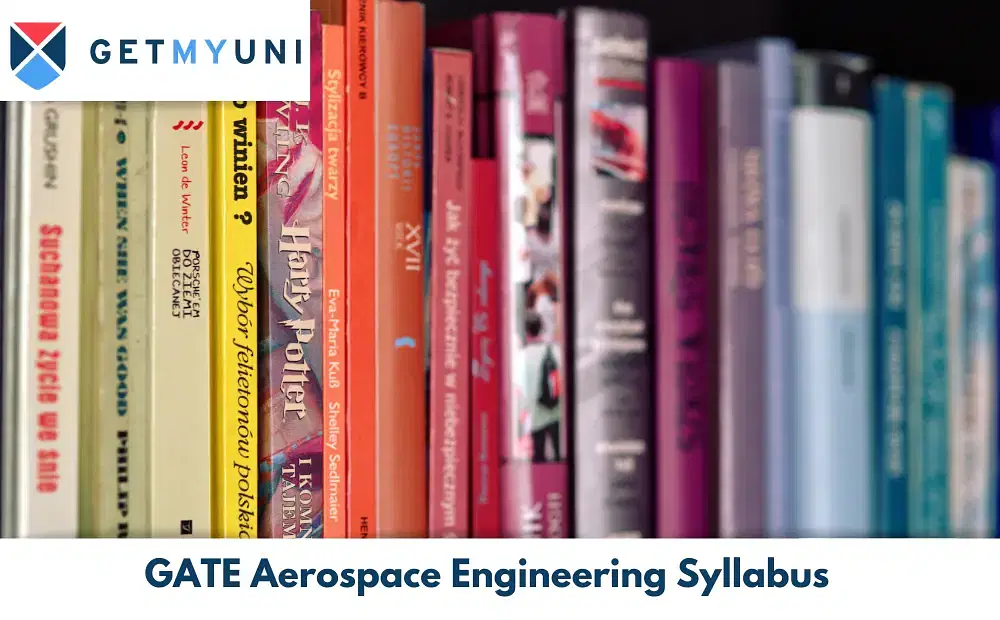BE degrees focus on academics and research, whereas BTech programs promote industry-relevant skills. The article details the difference between BE and BTech courses on various aspects like eligibility, colleges, career scope to provide students with deeper insight.
The difference between BE and BTech is that BE takes a more academic and conventional approach to engineering education, while BTech course emphasizes practical abilities and hands-on experience in technology-related sectors. BE vs BTech comparison shows that BTech emphasizes industry-relevant abilities, whereas BE emphasizes academics and research.
Many students seek a professional engineering course after their 12th. Both BE and BTech courses are tedious, but it pays off well as it offers lucrative job options to graduates. The article discusses the difference between BE and BTech and compares them on various aspects such as eligibility, colleges, scope and salary.
BE vs BTech: Key Differences
BE stands for Bachelor of Engineering, whereas BTech full form is Bachelor of Technology. The difference between BE and BTech is that the BE focuses more on acquiring information, whilst the BTech emphasizes developing skills. The key highlights of BE vs BTech are mentioned below:
| Particular | BE | B.Tech |
| Full-form | Bachelor of Engineering | Bachelor of Technology |
| Duration | 4 Years | 4 Years |
| Focus | Knowledge-based approach | Skill based approach |
| Internship Frequency | Internships and industrial visits are not frequent and compulsory. | Internships and industrial visits are more frequent and compulsory. |
| Average Fees | INR 25K to 3 lakhs | INR 1 to 2 lakhs |
| Higher Education Scope | MBA, M.Tech, ME, PGDM | M.Tech, MBA, PGDM, MS |
| Average Salary | INR 5 lakhs | INR 5 to 6 lakhs |
| Career Prospect | Design Engineer, Quality Control Engineer, Development Engineer, Computer Architect, Hardware & Network Administrator, Computer Operator etc. | Software Engineer, Quality Analyst, Software Tester, Data Analyst, Testing Engineer, Technical Support Engineer, Software Developer etc. |
Also, Read: What is Engineering?
BE vs BTech: Overview
When comparing BE vs BTech, the main focus of BE is on real-world applications rather than the theoretical aspects, whilst the main focus of BTech is on understanding the core concepts and gaining theoretical knowledge. Given below is an overview of both engineering courses in more detail.
Bachelor of Engineering (BE)
BE is a professional degree program segregated into 4 years, having eight semesters. The BE course focuses mainly on scientific theory concepts and experiments, later making it a reality. An engineering degree is considered one of the most reputed courses worldwide since it helps developing countries implement the latest technology trends.
Read More: BE
B.Tech (Bachelor of Technology)
Bachelor in Technology or BTech is an undergraduate-level course with a duration of three to five years depending upon the type of degree a candidate wishes to pursue. It can be a single degree or an integrated degree. It is quite a popular course to pursue engineering disciplines like electrical, mechanical, power, construction, food etc.
Read More: B.Tech
BE vs BTech: Eligibility Criteria
There is a significant difference between BE and BTech, but the eligibility requirements are somewhat similar. The basic eligibility comparison of BE vs BTech courses is mentioned below for a better understanding.
BE Eligibility Criteria
The eligibility criteria for BE course is:
- Needs to pass class 12th with at least 60% marks in aggregate.
- Must have had PCM/PCMB as core subjects in class 12th.
B.Tech Eligibility Criteria
The eligibility criteria for BTech course is:
- Must have passed the 10+2 exam from a recognized board with Physics, Chemistry, and Mathematics
- Must also have secured a minimum aggregate mark of 60%
Also Read on Best Engineering Branches in India
BE vs BTech: Admission Procedure
BE, and BTech are engineering degrees that students can enrol in after completing their 12th-grade education; however, each institution has its own admission requirements. Getting admission to these courses requires students to understand their admission procedures. Below is a detailed description of both processes.
BE Admission Procedure
The admission process for BE course is:
- Fill out the form for the appropriate entrance exam.
- The cut off lists of all the colleges are released post the results.
- Students are given admission based on their rank in the passed entrance exam.
B.Tech Admission Procedure
The admission process for BTech course is:
- Fill out the suitable entrance exam form.
- Following the results, the cut-off lists for all colleges are released.
- Students are admitted based on their performance in the specified entrance exam.
Read More: B.Tech Admission
BE vs BTech: Entrance Exams
A major criterion for BE and BTech admissions is qualifying for the specified entrance exam. Several entrance exams are conducted nationally or statewide to determine eligibility for the BE and B.Tech admission programs. Given below is BE vs BTech entrance exam comparison.
BE Entrance Exams
The entrance exams for BE are:
- JEE Main
- JEE Advanced
- VITEEE
- MET
- BITJEE
B.Tech Entrance Exams
The entrance exams for BTech are:
Read More: BTech Entrance Exams
BE vs BTech: Subjects
The BE and BTech programs both include an IT-based curriculum and syllabus. However, there is a difference between BE and BTech regarding syllabi, which may change depending on the institution. The following lists include the core subjects included in BE vs BTech.
BE Core Subjects
The Core Subjects of BE are:
- Engineering Physics
- Calculus of Linear Algebra
- Engineering Chemistry
- Elements of Civil Engineering & Mechanics
- Engineering Graphics
- Basic Electrical Engineering
Read More: BE Subjects and Syllabus
BTech Core Subjects
The Core Subjects of BTech are:
- Engineering Graphics
- Thermodynamics
- Basic Electronics
- Engineering Mathematics
- Control Systems
- Hydraulics
- Programming Language
Read More: BTech Subjects and Syllabus
BE vs BTech: Top Colleges
Many technical colleges offer BE and BTech across India. One has to choose the right colleges according to their area of interest and consider the lab provisions and the faculties handling the courses. Check out the top engineering colleges given below.
- IIT Delhi
- IIT Kharagpur
- IIT Bombay
- IIT Mandi
- IIEST Shibpur
- LPU
- NIT Calicut
- DTU
- Jadavpur University
- SRM University
- Thapar University
| Top Private Engineering Colleges in India | Top Government Engineering Colleges in India |
BE vs BTech: Salary
BE vs BTech salary differs depending on experience and skill level. BE and BTech offer students different skills and knowledge, which leads them to diverse career roles and salaries. The following tables show a comparison of BE vs BTech salary in India.
BE Salary in India
The salary after pursuing BE is:
| Designation | Average Salary |
| Software Engineer | INR 4.9 LPA |
| Senior Software Engineer | INR 8.5 LPA |
| Software Developer | INR 4.5 LPA |
| Mechanical Engineer | INR 3.5 LPA |
| Design Engineer | INR 3.5 LPA |
| Civil Engineer | INR 3 LPA |
Read More: BE Salary in India
BTech Salary in India
The salary after pursuing BTech is:
| Designation | Average Salary |
| Networks Engineer | INR 6.5 LPA |
| Full Stack Developer | INR 6.5 LPA |
| Software Developer | INR 2.5 LPA |
| Aeronautical Engineer | INR 5.9 LPA |
| Automobile Engineer | INR 6.1 LPA |
| System Analyst | INR 4 LPA |
Read More: BTech Salary in India
BE vs BTech: Career Scope
The BE and BTech courses both offer many job opportunities after completion. After graduating as an engineer, there is a huge demand in the industries, especially for those with the proper skills. Some of the popular jobs for BE vs BTech are listed.
Career Opportunities After BE
The BE course offers a promising career and lucrative pay. Some of the jobs areas for BE graduates are listed below:
- Autonomic Engineering
- Mechanical Engineering
- Civil Engineering
- Computer Operations
- IT Sector
- Development Engineering
Some of the top companies that recruit BE graduates are:
- Infosys Limited
- Tata Consultancy Services Limited
- HCL Technologies Ltd.
- Accenture Technology Solutions
- Capgemini
Read More on BE Jobs Scope in India
Career Opportunities After BTech
The job openings for BTech graduates are huge in technical fields. Here is the list of some of the popular areas that BTech holders can choose for the career options below:
- Telecommunications and networking
- Programming and software development
- Computer science research
- Information systems operation and management
- Image processing, graphics, and multimedia
Some of the top recruiters for BTech graduates are listed below:
- Ernst & Young
- Apple Inc.
- Microsoft
- HCL America
- Larsen & Toubro Infotech
- L&T Technology Services
- JP Morgan
Also, Read on What to do After B.Tech Engineering?
BE vs BTech: Benefits
An engineering degree is regarded as one of the most prestigious courses globally since it aids in the growth of countries by incorporating the newest technological trends. Here are some of the benefits and shows BE and BTech differences in more detail.
Why Choose BE?
The advantages of BE are:
- With the growth of the IT sector, the need for software and hardware engineers is on a surge.
- This particular field of study is lucrative from the aspects of career generation.
- There is creative freedom and job security in this field of study.
Why Choose BTech?
The advantages of BTech are:
- The course is highly skill/data-oriented.
- The BTech course is exceptional in providing theoretical studies knowledge through practical sessions.
- Engineers are vital in shaping the betterment of tomorrow. Design and development are one of the primary job functions of any engineering graduate in any domain.
| Complete List of Engineering Courses | Best Engineering Branches in India |
BE vs BTech: Which is Better
The BE programs focus more on academia and research when comparing BE vs BTech, while BTech courses emphasize practical, industry-relevant skills. The career growth in both engineering degrees is highly robust and dynamic, and graduates can earn a gratifying career in several disciplines. The primary difference between BE and BTech is the focus of the study.
- A Bachelor of Engineering is a degree that emphasizes the study of engineering and mathematics at an advanced theoretical level. In contrast, a Bachelor of Technology focuses more on the applied and real-world aspects of engineering.
- BE may beneficial if one wants to work in research or academia since it's more theoretical and research-oriented. BTech may be preferable if one wants to work in the industry since it's more practical and application-oriented.
Ultimately, students can decide on the ideal degree that fits their interests and professional aspirations. It is always the student's choice about what course to pursue, which depends on their skills and knowledge.










